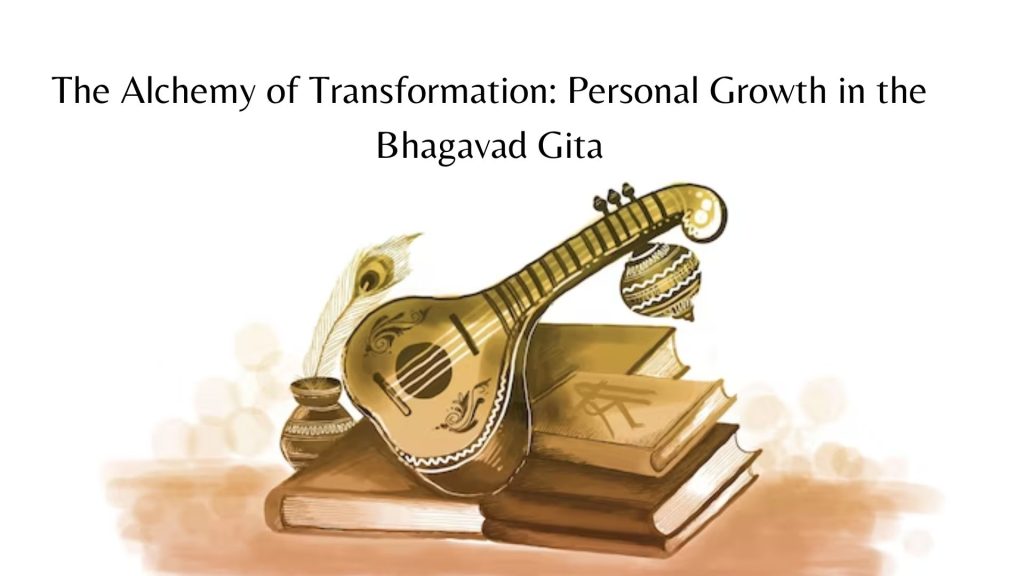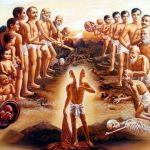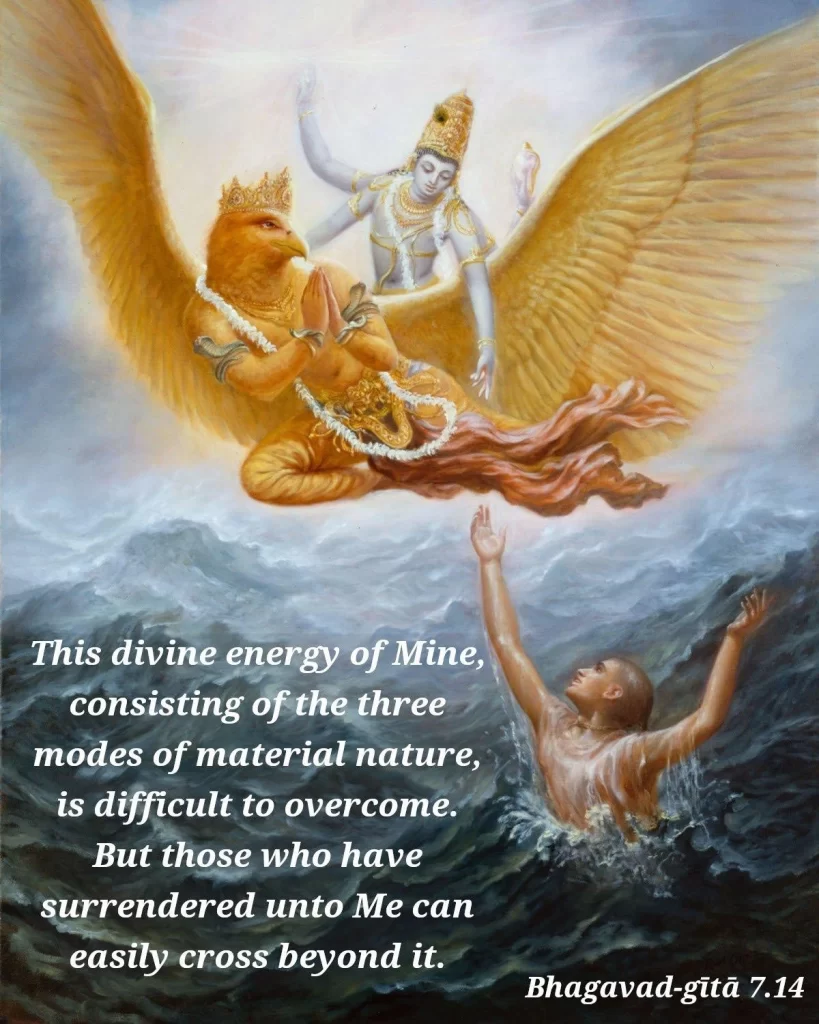The Bhagavad Gita, often referred to as the “Song of the Divine,” is a timeless spiritual text revered for its profound teachings on life, duty, and personal growth. Within its verses lies a treasure trove of wisdom that transcends time and culture, offering invaluable insights into the nature of existence and the path to inner transformation.

Table of Contents
Key Lessons from the Bhagavad Gita for Personal Growth
One of the pivotal verses in the Bhagavad Gita that encapsulates the essence of personal growth and action is found in Chapter 18, Verse 14:
“अधिष्ठानं तथा कर्ता करणं च पृथग्विधम् ।
विविधाश्च पृथक्चेष्टा दैवं चैवात्र पञ्चमम् ॥ १४ ॥”
This verse, spoken by Lord Krishna to Arjuna on the battlefield of Kurukshetra, delineates the five factors of action. It elucidates the interconnectedness of various elements that contribute to the fruition of any endeavour. These factors are the place of action (the body), the doer, the various senses, the different kinds of endeavours, and ultimately, the divine presence or the Supersoul.
In essence, this verse teaches us that success in any action is contingent upon the harmonious orchestration of these five factors. Each factor plays a crucial role in the manifestation of our deeds, and a thorough understanding of their interplay can lead to mastery over our actions and eventual personal growth.
Furthermore, the Bhagavad Gita emphasizes the importance of performing actions by the mode of goodness (Sattva Guna) and dedicating them to the Supreme Lord, Sri Krishna. By aligning our endeavours with divine consciousness and offering them as acts of devotion, we transcend the mundane realm of material existence and tap into the infinite reservoir of spiritual power.
When we engage in selfless service and pure devotion to Lord Sri Krishna, our actions become a vehicle for spiritual elevation and inner transformation. The Bhagavad Gita extols the virtues of performing one’s duties with unwavering devotion and surrender to the divine will. Such an approach leads to the purification of the mind and soul, paving the way for ultimate liberation (moksha) from the cycle of birth and death.
The practice of Bhakti Yoga, the path of loving devotion, is emphasized as the most potent means of attaining self-realization and union with the Divine. By offering every thought, word, and deed at the lotus feet of Lord Sri Krishna, one experiences the profound joy and fulfilment that transcends all worldly pleasures.
Conclusion
In conclusion, the Bhagavad Gita serves as a timeless guide for personal growth and spiritual evolution. Its teachings illuminate the path to inner transformation and liberation, providing solace and guidance to seekers across generations. By understanding and embodying the principles elucidated in verses like Chapter 18, and Verse 14, we can unlock the alchemy of transformation and realize our true nature as eternal souls on a journey back to the divine source.





